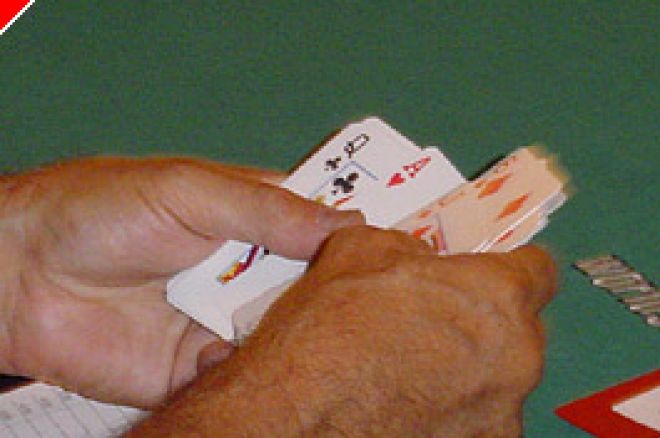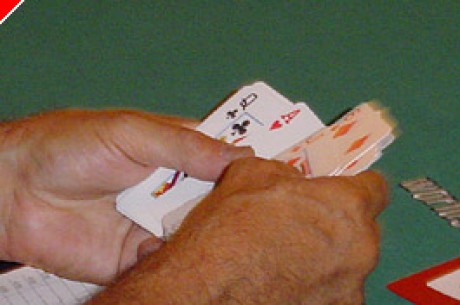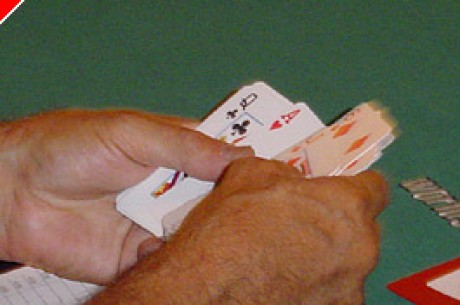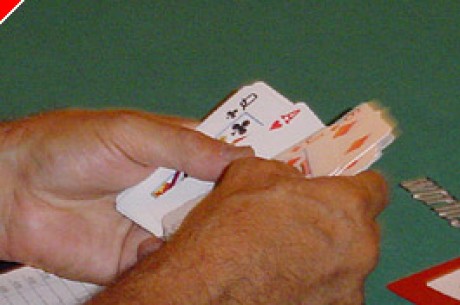Stud Poker Strategy: Buying the Free Card

You may have heard about players buying a free card. I know that I didn't understand what this meant for quite a while. But it is not an advanced move, and it's used almost routinely in many games. Here's how it works.
Let's say that on Fourth Street you have an exposed 2-Flush (8c-Jc)7cKc. Your opponent with (x-x)As9d bets $10 in this $10/20 game. Naturally, with a little less than a 50% chance of hitting your flush and almost surely winning the hand, you're going to the River with it unless your opponent catches something extremely scary. So you might normally call.
Instead, you can sometimes raise with that 4-Flush. You've given yourself a few new ways to win, enlarging a pot for yourself if you do catch the Flush, and also won yourself a free card on Fifth Street if you don't hit your suited card.
What's likely to happen is that your opponent will call your raise on Fourth - although if he was betting with only the Ace high then he might fold to your raise. But, in any event, unless he hits another Ace or makes trips or something strong he's likely to check to you on Fifth Street. This allows you to either continue to push your hand or, more likely, to check behind him if you haven't caught your third suited up card for the Flush. Since the bets double on Fifth Street you are actually buying a free Fifth Street card for the half price of a raise on Fourth Street.
Now, lest you go crazy with this move, realize that some players are sophisticated enough to recognize what you're doing. And they will re-raise you on Fourth to make your draw more expensive by two small bets rather than one. They will also lead out with a bet on Fifth if you don't hit another suited card - figuring that you were on a flush draw. This denies you the advantage of a free card, defeating the entire reason for the move in the first place. So be selective. Done sporadically or against unsophisticated opponents it is an excellent move that you should add to your arsenal.
Free cards, as they're called, can be "bought" on any street but the River - though they are most common on Fourth and Fifth Street. Just keep in mind that you can sometimes raise with the intention of freezing your opponents normal inclination to lead bet on the next round. Keep in mind that this only works if he is likely to have the highest board on the next round of betting. Your move doesn't succeed if you are first to go on the next round - as your checking will show weakness and invite your opponent to bet.
There is some additional collateral advantage to using this move from time to time - and it comes at the expense of your best opponents. If you actually do hit a monster on Fourth - perhaps when you started with a hidden pair and hit trips with your second up card - they will remember that you make this move to buy a free card on Fifth when you have a Flush draw. And they won't give you credit for really having a hand. You'll be able to raise with (QhQd)KsQs for example and get your knowledgeable opponent to call or even re-raise you, thinking that you're just pushing your drawing hand with a raise. This can pay enormous dividends - especially if you get another pair and he still assumes you're on a drawing hand.
Ed Note: Stud is the great old game. Great stud action always at Pacific Poker








